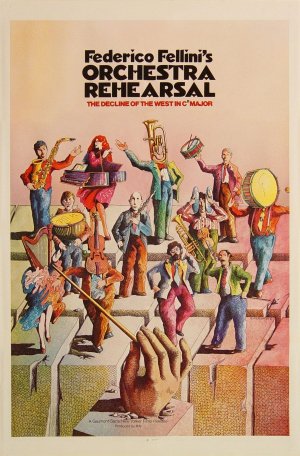artistic development and programming
15 November 2013 by Marc Taddei
I thought I would continue on from my last post regarding programming considerations that I believe are important. While budgeting is one of the most basic issues and can certainly lead to new avenues of satisfying artistic results, it is only one of many such considerations that come into play.
Today I would like to write about a hugely important consideration (not the most important – which is of course the consideration of the audience) – artistic development through programming. There should be no surprise that the choices of repertoire have a profound effect on artistic development. Great music brings great rewards.
Repertoire choices can be dictated simply by works the musicians really want to play – certainly there is nothing quite like coming to grips with a favorite work. For instance, this year thousands of musicians across the world have revisited Le Sacre and I can’t imagine any musician who wouldn’t be excited by the prospect of playing the most famous orchestral work of the 20th century. For instance, recently a few colleagues in the American Ballet Theatre orchestra and the Richmond Symphony were beside themselves with expressions of delight on facebook at the prospect of performing an entire season of this masterpiece!
Aligned to this is the idea of programming key works from the orchestral literature that present specific challenges to an orchestra. These are works that consistently appear on orchestral auditions for numerous instruments – works that mark themselves out as benchmarks for the profession. I think of works as disparate as Don Juan, Mozart 35, Scheherazade and Mahler’s 5th Symphony that belong in this category. On Sunday, Leonore Overture #3 will be performed by Orchestra Wellington and it too, is a work in this category. Generally works such as these are also standard pieces – masterpieces that every excellent orchestra should essentially have at their finger tips.
The idea of focusing on particular styles can certainly have a profound effect on the growth of standards as well. The more an orchestra works in a particular genre, the more at home they are going to become. Classical era, early, late and post romantic – these and other eras need to have a coherent approach – appropriate to the era, composer and individual work in question.
Kind of opposite this idea but also very effective is the idea of taking a very eclectic approach – especially within individual programs. Excellent orchestras have the ability to convincingly interpret works in multiple styles and I believe it is the mark of a fine orchestra that they are able to negotiate these sometimes radical changes in sound and style over the course of an evening.
For me it all comes down to “time in the saddle”. Like everything we do as musicians, practice makes perfect! I do not subscribe to the belief that one can “lift” to a new level in performance. These levels must be explored in the practice room and in rehearsal over time. There is little room for miracles in either music, or sport for that matter – with the notable exception of the 1969 Mets.
Another approach that I believe in is the use of musical cycles to further artistic growth. Certainly cycles can be enormously popular with the audience, but for an orchestra, the prospect of an entire cycle can be immensely inspiring. Clearly the Beethoven symphonies are the Everest of cycles (with all due respect to Mahler) and the opportunity for an orchestra and conductor to delve into the journey of (re)discovery can have the effect of greater unanimity as an ensemble in terms of approach and stylistic concerns. One can’t but help to gain a deeper understanding of the composer as a result. For instance, in the past few seasons, Orchestra Wellington has presented the Beethoven Piano Concertos and all of the Leonore/Fidelio overtures, among other cycles. Over the next two seasons we have two significant symphonic cycles planned that will demand very different artistic approaches. It should go without saying that for all of these approaches, an appetite for the process of rehearsal is required! I have no doubt that the journey that my colleagues and I will make in confronting these works will be hugely enjoyable for us and I certainly hope that this enthusiasm is palpable to our audience.
